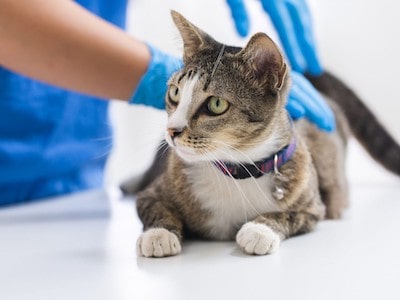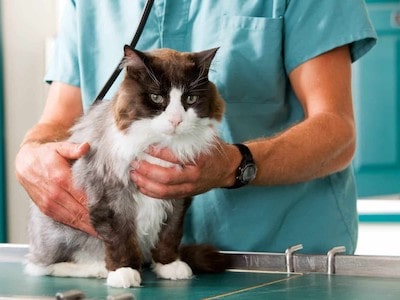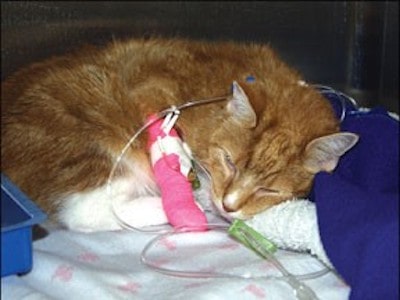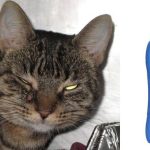The US Food and Drug Administration (FDA) has granted conditional approval to Elanco’s Varenzin-CA1, making it the first drug approved for the control of nonregenerative anemia associated with chronic kidney disease (CKD) in cats.
The drug is available only by prescription from a licensed veterinarian. CKD is a common disease in cats and requires daily management.
One of the complications associated with CKD is nonregenerative anemia, which often contributes to death or euthanasia of affected cats due to poor quality of life.
Understanding Feline Anemia
Anemia is a condition that occurs when there is a reduction in the number of red blood cells or hemoglobin in the blood. Hemoglobin is the protein in red blood cells that carries oxygen from the lungs to the rest of the body.
In cats, anemia can be regenerative or nonregenerative. Regenerative anemia occurs when the bone marrow is producing red blood cells at an increased rate, often in response to blood loss or hemolysis (destruction of red blood cells).

Nonregenerative anemia, on the other hand, occurs when the bone marrow is not producing enough red blood cells, which can be a result of various underlying conditions, including chronic kidney disease.
Nonregenerative Anemia in Cats with CKD
Nonregenerative anemia in cats with CKD occurs when their kidneys produce less of a hormone called erythropoietin, which helps the bone marrow produce red blood cells.
Cats with CKD often develop anemia over time, which can lead to a decreased quality of life and an increased risk of mortality.

Current treatments available for nonregenerative anemia in cats with CKD include blood transfusion, supplemental iron therapy, and erythropoietin replacement.
However, there are no erythropoietin treatments approved for use in cats.
How Varenzin-CA1 Works
Varenzin-CA1 works by increasing the production of erythropoietin in the kidney, which stimulates the bone marrow to produce more red blood cells.
This drug provides a new treatment option for cats with CKD-associated nonregenerative anemia. The drug is given orally to the cat once a day for up to 28 days, and the treatment may be repeated as needed after a minimum seven-day pause.
FDA’s Expanded Conditional Approval Program
Under the FDA’s expanded conditional approval program, the agency has concluded that Varenzin-CA1 is safe for its intended purpose and has a reasonable expectation of being effective.

The expanded conditional approval program is intended for drugs that address a serious or life-threatening disease or condition, or an unmet animal or human health need, and for which demonstrating effectiveness would require a complex or particularly difficult study or studies.
This allows cats suffering from the disease to receive the treatment while full effectiveness data is being collected.
Possible Side Effects
Before prescribing Varenzin-CA1, veterinarians should advise cat owners about possible side effects, which include vomiting, increases in systolic blood pressure, and thromboembolism.
The FDA also encourages cat owners to work with veterinarians to report adverse events or side effects potentially related to the use of any drug, including Varenzin-CA1.
Final Thoughts
In conclusion, the FDA’s conditional approval of Varenzin-CA1 for the treatment of nonregenerative anemia associated with chronic kidney disease (CKD) in cats is a significant development in the field of veterinary medicine.
This drug has the potential to improve the quality of life and extend the lifespan of cats suffering from CKD-related anemia.
However, it is essential to note that Varenzin-CA1 is not a cure for CKD, and its use should be closely monitored by a licensed veterinarian. Cat owners should also be aware of the potential side effects and report any adverse reactions to their veterinarian.

Charlene Pare is the founder of Cat Likes Best. She manages and strategizes the content published on this website. When she isn’t working, she enjoys exploring the city around with her Ameican Shorthair kitty–Moli. Being a technocrat and an avid cat lover, she also writes on pet tech products and some of the featured articles.




